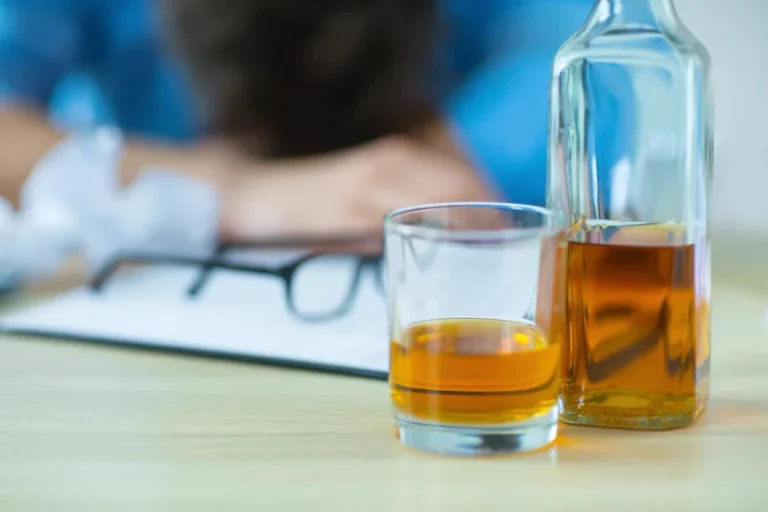
Since it is not possible to get rid of acetaldehyde, your body will turn it into carbon dioxide, which is easy to remove from your system. We can help you or your loved one through the admissions process and begin recovering from addiction.

Alcohol withdrawal timeline
- Outpatient programs also tend to be less expensive than inpatient ones.
- Get a ride-hailing service, even call a friend before you put yourself and others in danger.
- We are dedicated to transforming the despair of addiction into a purposeful life of confidence, self-respect and happiness.
- Of all your body’s organs, your liver takes the biggest hit when it comes to alcohol.
If a person has alcohol intoxication, any alcohol they drink will remain in the body for several hours and continue harming the brain and vital organs. Once swallowed, alcohol enters the digestive system, travels to the stomach and small intestine, and is absorbed into the bloodstream. Once in the blood, alcohol moves throughout the entire body and eventually ends up in the liver, where most alcohol metabolism occurs. Alcoholic beverages such as beer, wine and liquor break down differently in each person’s body. The substance is absorbed into the bloodstream through the stomach and the walls of the small intestines, affecting the kidneys, bladder, liver, lungs and skin.
For Immediate Treatment Help Call 800-526-5053
As a result, if you drink a lot or very quickly, some unmetabolised alcohol will linger in your blood, leading to intoxication. While these techniques create the illusion of sobriety, they have no effect on BAC. Although eating before a night of drinking will slow down alcohol absorption, it will not keep you sober as you continue to drink. Eating after a few drinks will not reduce your level of intoxication because food does not have an effect on alcohol that has already been absorbed into the bloodstream. Genetic, environmental, and physical and mental health factors control alcohol metabolism and elevate your blood alcohol content — the percentage of alcohol in the blood. This metabolic process is relatively constant, with the liver able to process about one standard drink per hour for an average person.
Increase Your Water Intake
The length of time alcohol stays in the body will depend on factors such as individual features, how much a person has drunk, and how fast. Sunshine Behavioral Health strives to help people who are facing substance abuse, addiction, mental health disorders, or a combination of these conditions. It does this by providing compassionate care and evidence-based how to flush alcohol out of your system content that addresses health, treatment, and recovery. While it’s possible to successfully complete alcohol detox on your own, there are situations where doing so can be dangerous or even fatal. Someone coming off a long history of chronic drinking can expect to experience severe withdrawal along the lines of convulsions, paranoia, and even psychosis.
[Podcast] Episode 7: The Woman Changing How the World Sees Non-Alcoholic Drinks with Victoria Watters
Your health care providers will then taper you off these medications. The Ethyl Glucuronide (EtG) urine test can detect the presence of any alcohol consumption in the urine. Ethyl Glucuronide is present in the body after consuming alcoholic beverages. Eating iron-rich foods can give you energy, make you feel replenished and help to alleviate the effects of alcohol consumption. Zinc deficiency can hinder the effectiveness of hepatic enzymes that break down alcohol, which intensifies and prolongs the effects of alcohol intoxication.
If you don’t have enough ADH or ALDH, your stomach will send the alcohol directly to the small intestine. From there, it hits your bloodstream and your brain, and you start feeling its effects. Liver impairment, whether or not alcohol-related, can limit https://ecosoberhouse.com/ your ability to eliminate alcohol from your body. The liver plays a primary role in processing alcohol, so any type of liver damage will reduce its efficiency. Alcohol is detectable in hair follicles much longer than blood, saliva, breath, or urine.

Short-Term Effects of Alcohol
However, long-term or excessive use can slow down that process and could damage your heart, liver, kidneys, and gut health. According to National Institute on Alcohol Abuse;While water itself doesn’t directly flush alcohol out of your system, it plays a crucial role in the detox process. Rehydrating by drinking water can alleviate the symptoms of dehydration, such as headache and dizziness, but it does not speed up the metabolism of alcohol in your liver. To avoid these symptoms, seek help at an alcohol detoxification program.
- You also excrete a small amount—2-5%—of alcohol through your breath, sweat, and urine.
- Any number above 0.02% is unsafe since you experience some loss of judgment and a decline in visual functioning.
- The liver has to do its work of processing the alcohol in your body, and there is no way to speed things up, but there are several things you can do to help yourself recover more efficiently.


